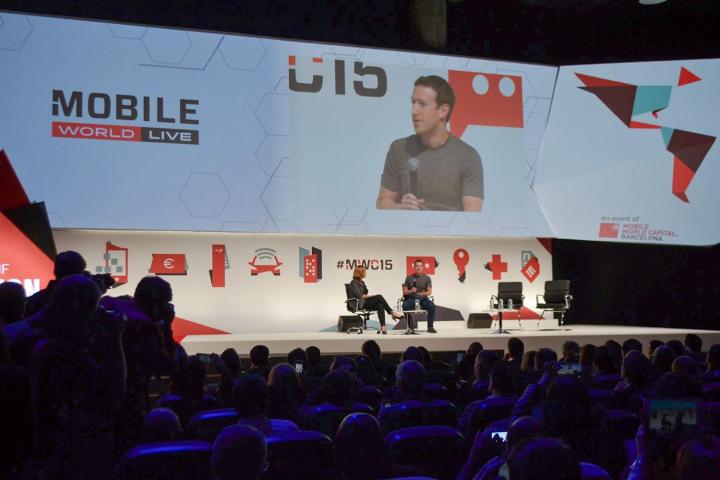

That’s what brought the CEO of the world’s largest social network to Barcelona on Monday to speak at Mobile World Congress 2015.
In August 2013, Zuckerberg started Internet.org, an initiative that’s designed to bring free basic access to services like Facebook in developing markets. Facebook partners with mobile operators in these new markets, finding ways to help build out infrastructure while also promoting free access of Facebook as a part of a trial service. The concept is that trial access to services like Facebook will ultimately encourage more people to get online and buy data plans.
Last year Facebook announced efforts, much like Google’s, to bring Internet access to emerging markets with satellites and drones. This year, the focus was on helping mobile providers build out the fiber and cell towers to make mobile Internet access a reality for millions of people. But Zuckerberg affirmed that it isn’t just the cool technology that’s going to bring the Internet to the world:
“The reality is that 90 percent of people in the world already live in range of a network. While it’s sexy to talk about satellites and all that stuff, the real work happens here,” he said, referring to Internet.org’s partners in regions like Zambia and Colombia.
One of the operators agreed with Facebook’s perspective, noting, “When you have people who haven’t grown up with the Internet, and you ask them if they want a data plan, you have to first explain to them what a data plan is.”
Each country also has its Internet.org connectivity customized depending on its needs. In areas of Africa, for example, much of the free services offered include access to health information, alongside the basic or free trial access to sites like Facebook. It doesn’t include access to some more in-depth Facebook services that might compete with mobile operators, such as WhatsApp. It’s an evolving partnership that’s designed not to hurt mobile carriers, but help everyone involved get more people online and enjoy mobile Internet access.
The Internet.org app originally launched in 2014 with free Internet access in Zambia, and has since grown to include service in Colombia, India, Kenya, and Ghana, with more regional support on the way.



